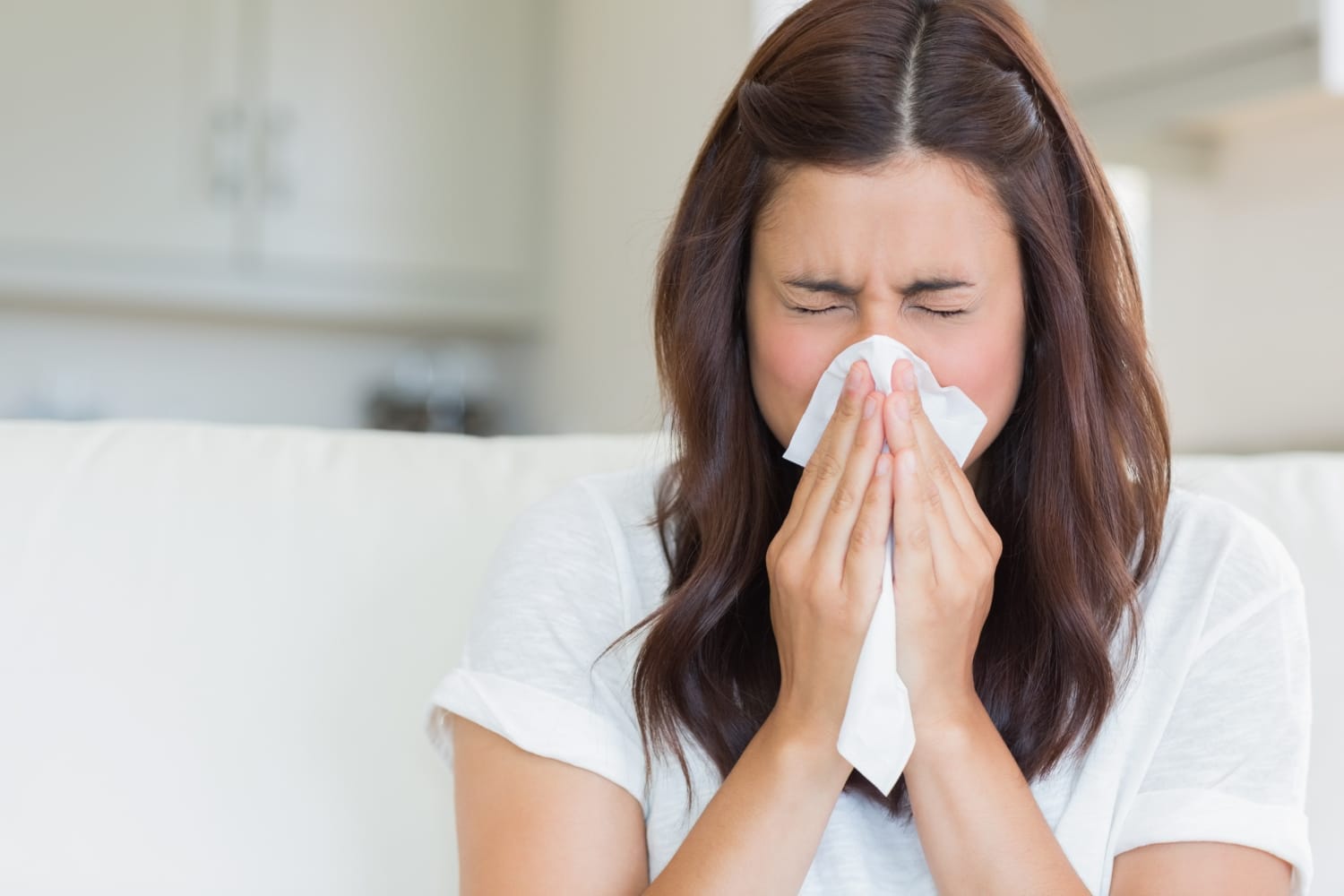Have you ever wondered if you’re allergic to the dentist? If so, it’s not uncommon. Patients may experience dental allergies at appointments based on the equipment and materials being used by the dentist.
This article will discuss the kinds of dental allergies and the symptoms that may occur.
Types of Dental Allergies and Symptoms
If you ever experience any of the following complications, inform your dentist before your next appointment.
Latex Allergy
Allergic reactions to latex are caused by specific proteins in the latex material. Comparable to a peanut allergy, the body responds as if the material is a threat. The immune system enters fight mode and directs antibodies to fight off the material. Histamine and other chemicals are released into the circulatory system, which causes an allergic reaction.
Symptoms of a latex allergy consist of:
- Itchy, red skin and/or eyes
- Rash or hives
- Scratchy throat
- Sneezing
These are signs of a minor latex allergy. If a patient experiences more intense symptoms, it is called anaphylaxis. Anaphylaxis occurs quickly and can be lethal. Get emergency medical care if you experience the following signs:
- Poor or quickened pulse
- Nausea and vomiting
- Wooziness
- Confusion
- Loss of consciousness
Contact Dermatitis
When our skin is exposed to certain chemicals in soaps, perfumes, or cosmetics and has an allergic reaction, it is called contact dermatitis. Side effects of this reaction consist of rough, itchy, and burning skin.
There are two categories of contact dermatitis:
- Allergic Contact Dermatitis: a skin allergy to nickel, poison ivy, latex gloves, cosmetics, or fashion jewelry.
- Irritant Contact Dermatitis: occurs when our skin has been irritated by a material over some time.
Some patients may experience allergic reactions to materials such as amalgam fillings, toothpaste, fluoride techniques, and chemicals used in dental bonding and porcelain. Reactions may occur in the gums, lips, tongue, and skin.
Local Anesthetic Allergies
Many patients wouldn’t be able to sit through a tooth extraction or a tooth filling without the use of local anesthetic. Some people, however, may be allergic to local anesthetics.
When anesthesia is used, some of it gets into the patient’s bloodstream and can cause their heart to race, similar to having too much caffeine. It’s normal and usually stops in 5-10 minutes.
Warnings that may indicate a local anesthetic allergic reaction is happening are as follows:
- After the local anesthetic is administered, patients may experience mouth swelling.
- In more extreme cases, patients may experience trouble breathing.
- Other side effects of this reaction include feelings of panic, heightened heart rate, hyperventilation, and contact dermatitis
Why Might Some Patients React Negatively to Local Anesthetic?
This may be caused by sensitivity to epinephrine and preservatives, including methylparaben. Those who believe they may be allergic to novocaine or other local anesthetics can take a skin allergy test to determine if this is the case.
It’s vital to remember to share your medical history with your dentist. This may determine if local anesthetics are the appropriate solution for you.
Navigating Dental Allergies
Dental allergies can be frightening, but your safety is paramount at Twin Dental. Never hesitate to ask any questions or express any concerns you may have at your appointments.
Don’t let dental allergies scare you away from oral health — schedule an appointment with us today.


